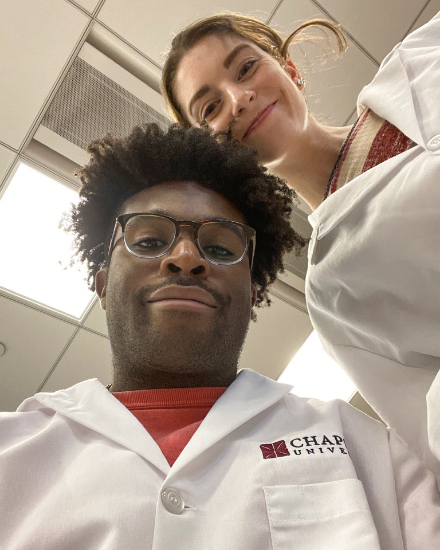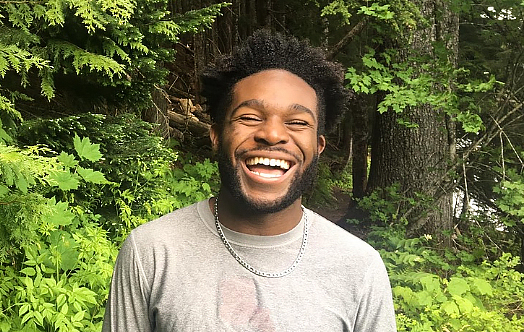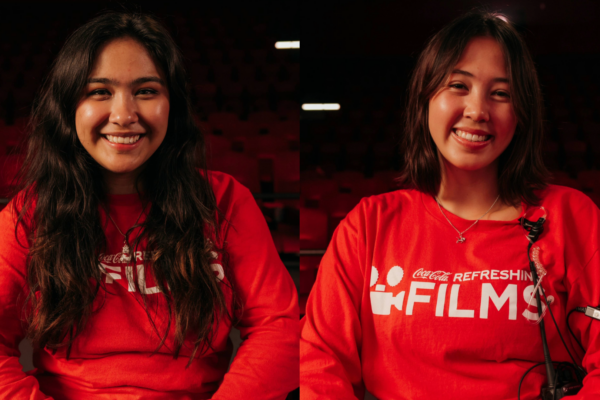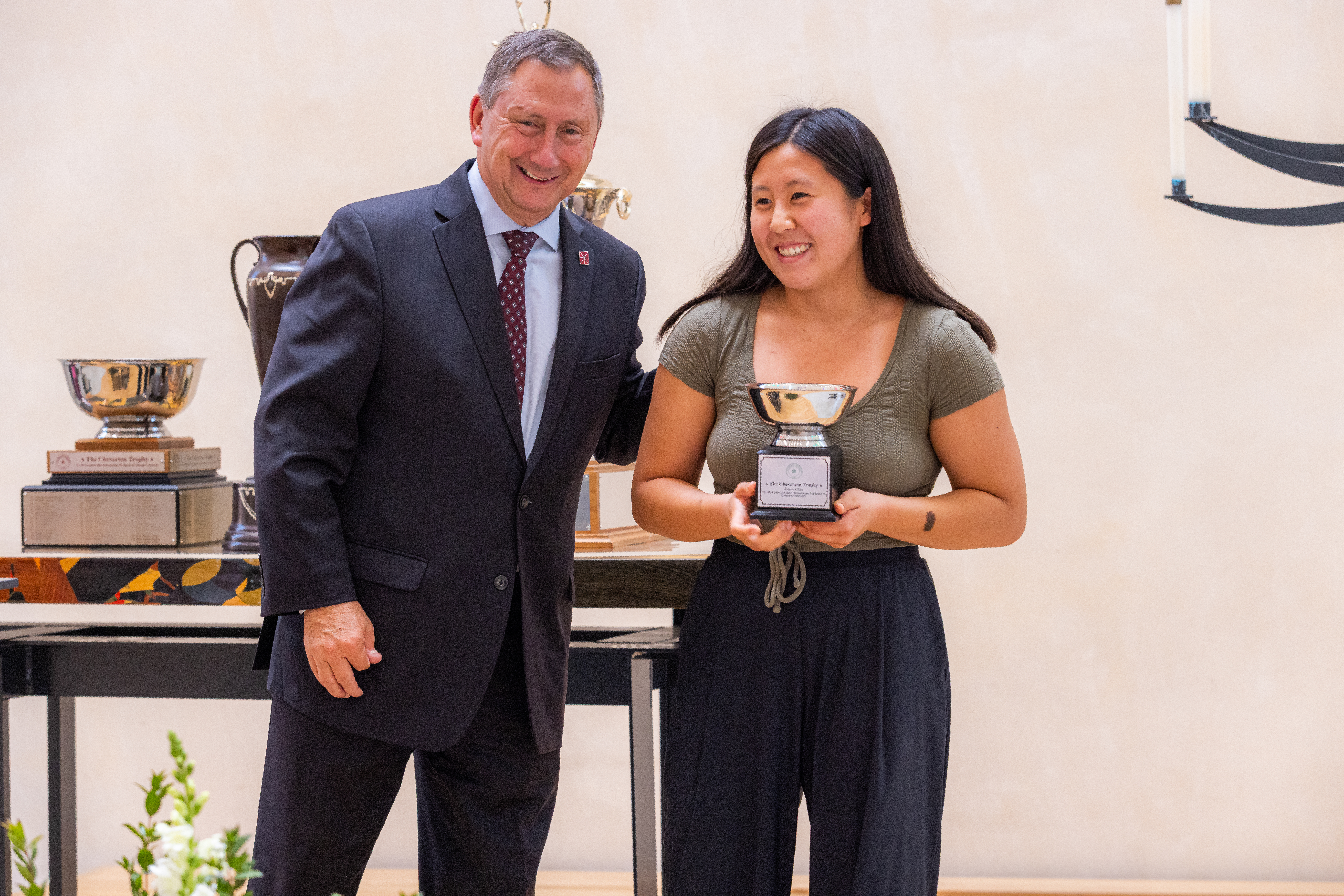When Matthew Nwerem ‘20 (MS ‘21) was a child, his computer was a gateway to fun and games. Now it’s a tool for research that is opening doors to a method of medicine with the potential to change lives.
Nwerem wants to be a physician, which is why he was drawn to Chapman University’s Biochemistry and Molecular Biology Program for his undergraduate studies. But he quickly also found his way to the 4+1 MS in Computational and Data Sciences (CADS) Program in Chapman’s Schmid College of Science and Technology.
Uniting a Passion for Biochemistry With Data Science

“Dr. (Elaine) Schwartz suggested I try computer science during interterm of my freshman year, and I immediately liked it,” Nwerem says. “I became very interested in finding a way to combine these two passions — science and innovation, coupled with computer science as a way to affect lives for the better.”
Clearly, Nwerem is comfortable combining pursuits. He’s interning with the data science team at CHOC Children’s Hospital in Orange while he earns two degrees at Chapman. In his research project, Nwerem is exploring ways that data can inform care so patients avoid the need to be readmitted to the hospital.
We asked Nwerem to tell us more about his Chapman experience and how he hopes to apply what he’s learning when he becomes a doctor.
What has allowed you to bridge your undergraduate biochemistry studies with what you’re learning in your graduate computational and data science classes?
“I’ve gotten a lot of help along the way. The first class I took at Chapman was with Dr. Schwartz, who is co-director of chemistry and biochemistry, and I was late for the first class because I couldn’t find the right building. I was worried about getting off on the wrong foot, but it has become such a great relationship. She has been there for me all across my experience. Her office hours not only helped me with her class but with planning my future.
“Even now as I’m applying to medical schools, she’s someone I can email and talk with as I consider the best situations for me.”
How have you dealt with the day-to-day challenges of such a demanding program?
“The community at Chapman has really affected me. All the faculty members care about their students — not just in their classes but their overall well-being. Some of my student colleagues in the CADS program I’ve been with for five years now. We study together almost every day. We talk about our goals, and whenever we’re in doubt — about a test or our own abilities — we’re always there to reassure each other and to help each other improve.”
What are you currently working on in your graduate studies that’s driving your passion for computational and data science?
“I’m learning a lot about the importance of data visualization. It’s great to have results, but if you don’t have a way to show how important the results are, no one is going to listen to you. It goes hand in hand with science literacy. Scientists need to explain their research in compelling ways that make sense for people who are not experts in that field.”
How might data science findings directly affect the care you deliver as a physician?
“Let’s consider heart disease, because that’s something doctors are seeing a lot of these days. There are lots of drugs physicians could incorporate into care, and let’s say there are enough data points within a community that we can show that the prevalence of heart disease is decreased when using this drug or these tactics. I could tell the patients that I myself have done this research, and I’ve seen positive results. I think that could really make a difference in a community.
“I want to take an approach that goes from bench top to bedside and back to bench top. I want to be able to tell patients that I’ve really dug deeply into this and I think this is the way we can improve your health.”
Learn More
Learn more about Chapman’s MS in Computational and Data Sciences.




